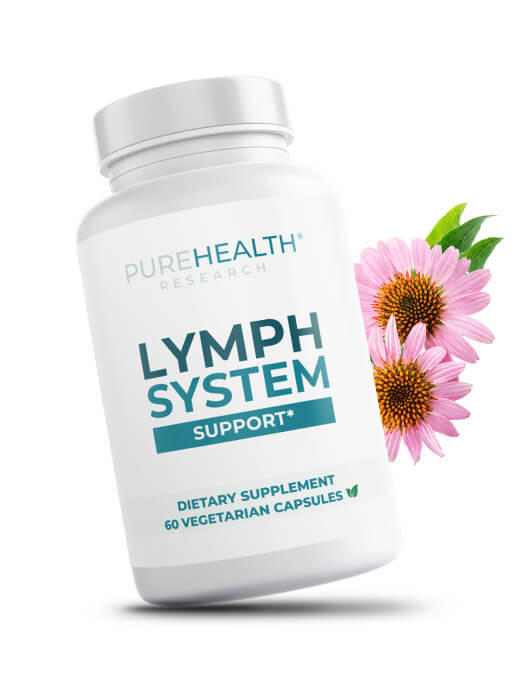Echinacea
- Latin Name: Echinacea purpurea
- Common Name: Purple Coneflower
- Family: Asteraceae
- Source: Native to North American prairies and cultivated worldwide

What is Echinacea?
Echinacea represents a remarkable botanical treasure that has stood the test of time. As an echinacea dietary supplement, it's derived from various parts of the purple coneflower plant, including the roots, flowers, and leaves.
What makes echinacea particularly special is its rich history of traditional use by Native American cultures. Modern extraction techniques now allow us to concentrate these beneficial compounds, making them readily available in supplement form.
Echinacea Herb Benefits
What are the benefits of echinacea? Here's a list of potential echinacea herb benefits that you might expect from this supplement:
PureHealth Research Products with Echinacea
Echinacea Dosage
Whether you choose liquid, tea, or capsules, taking Echinacea with meals helps your body receive its benefits comfortably. If you're new to Echinacea, start with one serving daily and gradually work up to the suggested amount.
| Form | Daily Amount | How to Take | Duration |
|---|---|---|---|
| Liquid Extract - Adults | 2.5-5 mL, three times daily | Take with water or juice | Up to 8 weeks |
| Liquid Extract - Children (6-12) | 1.25-2.5 mL, three times daily | Mix with juice or water | Up to 8 weeks |
| Dried Root Tea | 1-2 grams, three times daily | Steep 10-15 minutes in hot water | 6-8 weeks |
| Capsules/Tablets | 300-500 mg, three times daily | Take with meals | 6-8 weeks |
Interactions with Other Ingredients
Echinacea shows particularly beneficial synergies with immune-supporting nutrients. The combination of echinacea with elderberry has shown particular promise in research, offering complementary support for respiratory health.
However, certain combinations require careful consideration. Those taking immunosuppressive medications should consult healthcare providers, as echinacea's immune-stimulating effects may interfere with these treatments.
Side Effects of Echinacea
Most people tolerate echinacea well, with only mild, temporary effects during initial use. The most common response is a tingling sensation in the mouth, which actually indicates the presence of beneficial alkamides.
What is echinacea good for?
Echinacea supports overall wellness with particular benefits for seasonal health, skin vitality, and natural immune function. It's commonly used as a supplement to promote general wellbeing throughout the year.
Does echinacea help with a cold?
Echinacea may support your body's natural response during seasonal challenges. Many people incorporate it into their wellness routine during autumn and winter months for added support.
How long does echinacea stay in your system?
The active compounds in echinacea typically remain in your system for 24-48 hours. For optimal benefits, consistent daily use as part of your wellness routine is recommended.
Can echinacea be taken during pregnancy?
Each pregnancy is unique, and supplement choices should be discussed with your healthcare provider. They can offer personalized guidance based on your individual circumstances.
What are the medicinal uses of echinacea?
Traditional echinacea uses include supporting seasonal wellness, maintaining healthy skin, and promoting natural immune function. It's valued in both internal and external applications.

